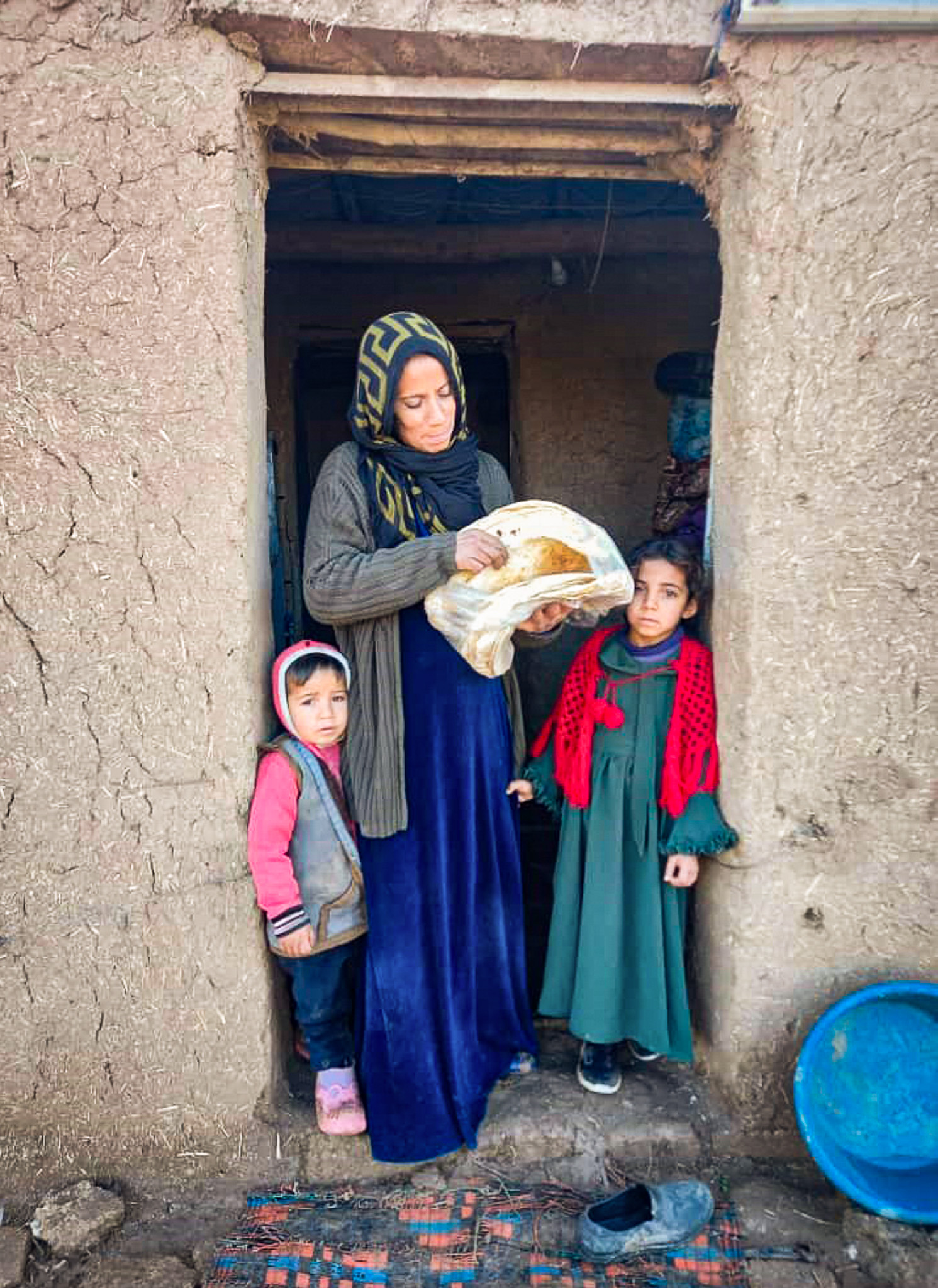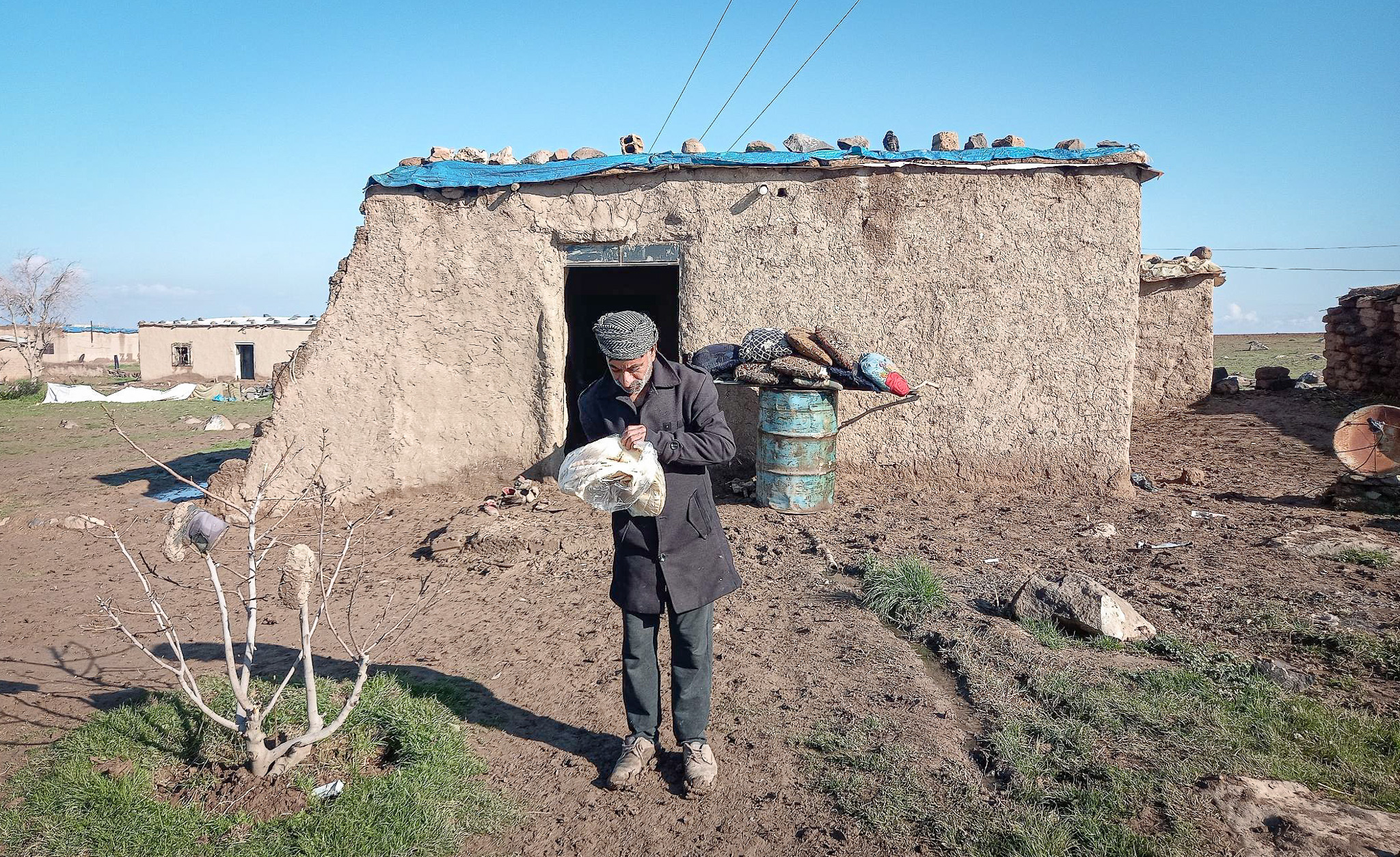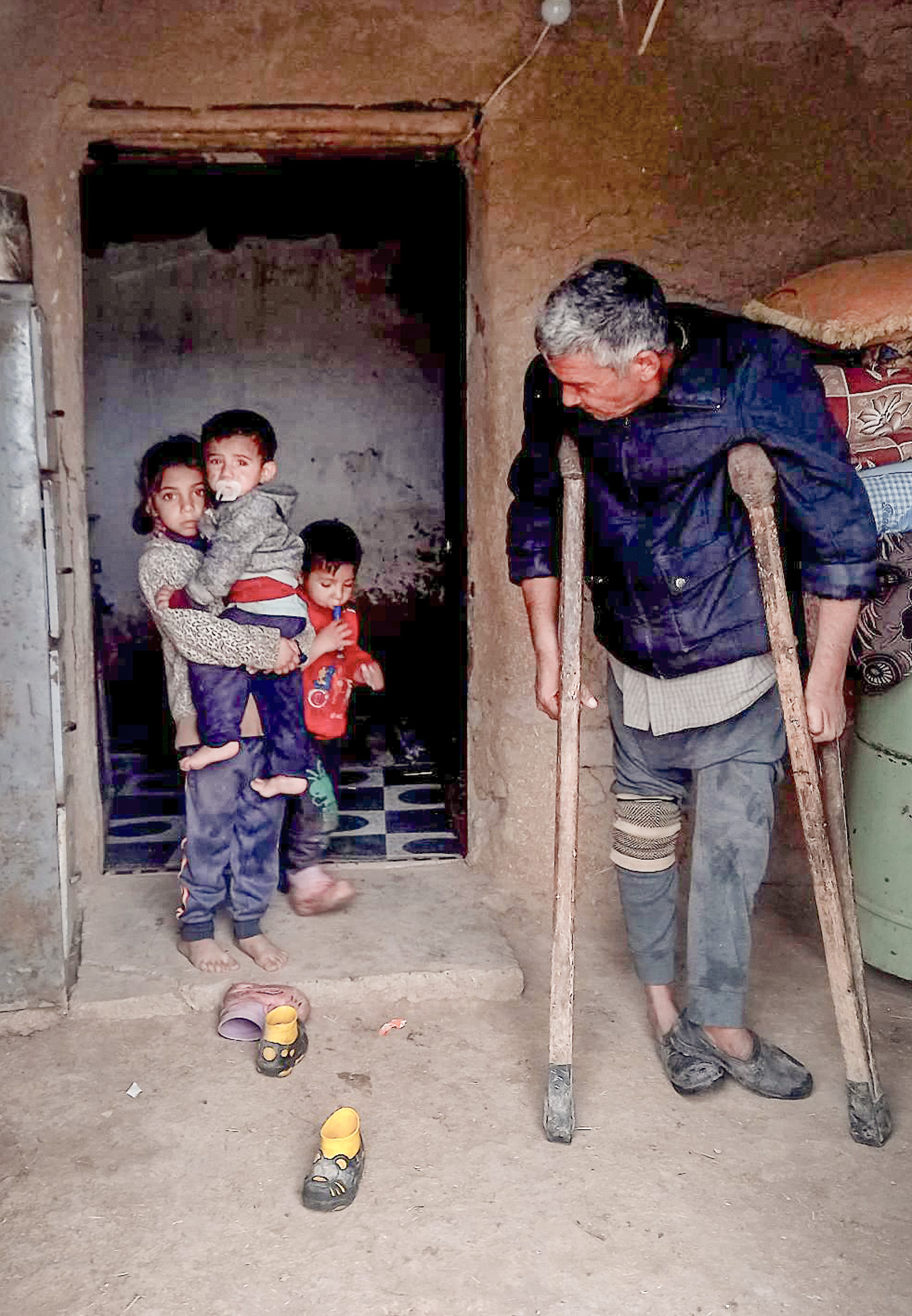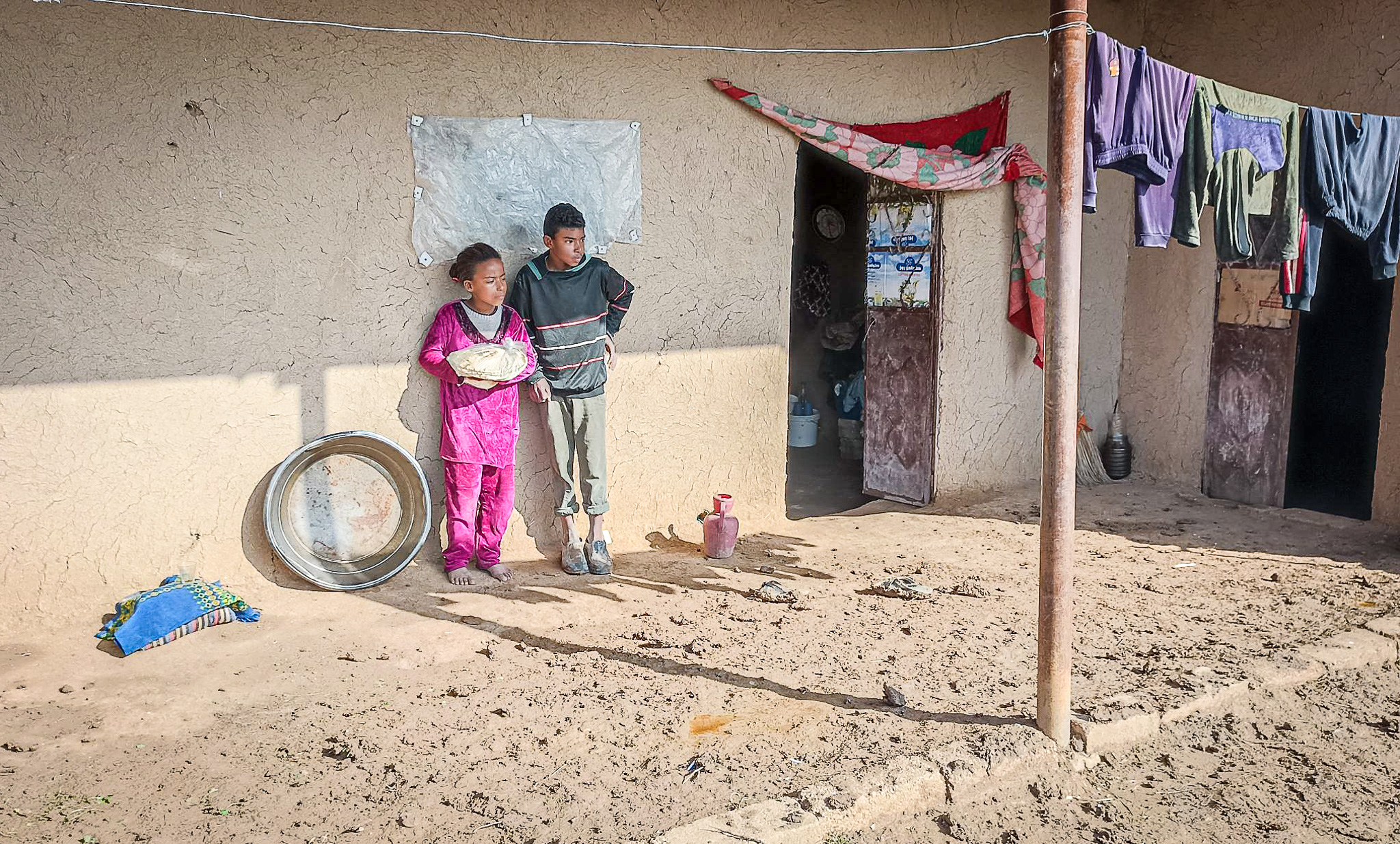In Syria, over half of the population grapples with acute food insecurity–a staggering 12.1 million people.[1] In the northeast, a region that has seen more than 10 years of conflict, the impact of drought, high production costs, and rising food prices have only exacerbated the problem.
The Shelter and Food Emergency Response (SAFER) program, funded by the USAID Bureau for Humanitarian Assistance, aims to improve food security for people in northeast Syria. Two activities–bread distribution and food vouchers–are ensuring communities can regularly eat fresh, nourishing foods. In 2023, we reached more than a half million people under our food security initiatives across Al-Hasakeh, Ar-Raqqa, and Deir ez-Zor governorates.

Nazha, a mother of two in northeast Syria, buys bread discounted through the SAFER program, which alleviates the pressure she feels to buy food for her family on a low income.
SAFER provides local bakeries with locally or regionally sourced, high-quality flour for fresh bread production. Serving both displaced people and vulnerable families in local communities, we distribute bread free of charge in camps and informal settlements and sell it at a discount to host communities.
The bakeries we work with produced over 20 million kilograms of bread–the equivalent of 13,000 average-sized cars–for their communities and nearby displacement camps last year. For many, access to free or discounted bread is life-changing. Whether food is hard to come by because of poverty, disability, or displacement, the guarantee of daily bread is a relief.
Each person waiting in line for bread has their own story of resilience.
Nazha, her two children, and her husband–who cannot work because of a disability–live in a one-room house in a small village. She tries to make ends meet by farming. “I put in long hours from sunrise to sunset, especially during potato and onion seasons. Alongside that, I tackle various tough farming tasks, which can be a real challenge even for healthy men. I stand up, give it my all, and work my hardest to make sure my family has enough on the table.”
Some days, bread from SAFER is the only food Nazha’s family eats. “The recent rise in flour and bread prices has made our situation even more precarious, making SAFER’s assistance crucial for our survival,” she said.

Radwan, in front of his home, held a bag of fresh bread that he bought at a discounted price through the SAFER program.
Radwan, a father, has taken on many obstacles to care for his family. Currently, he is unable to work due to a herniated disc. When he lost his home and job in Damascus due to the ongoing conflict, Radwan moved his family back to his home village with nothing to their name. “We were living on aid from other people, which is not always available,” Radwan shared.

Radwan said he is able to buy fresh bread for his children at an affordable price enabled by the SAFER program and partner bakeries.
Radwan buys two kilograms of bread for his family three days per week from a SAFER-supported bakery. “If it wasn’t for SAFER’s bread, we’d face serious challenges. The purchasing price is acceptable,” he said.
In another small village, Mahmoud, who has a disability, cannot always provide for his family. He used to have a job at the village’s water station but can no longer make a stable income.
“The assistance from SAFER was the helping hand we desperately needed,” he said. “The consistent supply of bread provided by the organization has been a lifeline for my family, easing some of the burdens during these challenging times.”
Suad, a 50-year-old widow, lives in a mud house with her two children. They rely on the generosity of others to fight hunger. “There are no basic foods in the house for my children such as meat, vegetables, and fruits. I have not cooked meat since last Ramadan,” she said. When she could afford bread, she would have to walk for two hours to a bakery.
Suad said SAFER’s food interventions have changed her life. She shared, “Now, I receive bread from a nearby distribution point. It follows a consistent schedule, three days a week, at specific times, offering high-quality bread at an affordable price.”

Food insecurity affects families across northeast Syria, like Suad and her children (pictured here), who live far from markets and cannot afford diverse foods. SAFER’s food interventions have helped have food at home more regularly.
As Syria grapples with the repercussions of conflict and economic instability, SAFER is helping hundreds of thousands of people find a way through. Families can focus on other necessities in life when they know there will be food tomorrow.
[1] Half of Syria’s population faces hunger as conflict passes 12-year milestone and earthquakes deepen economic woes, World Food Programme (WFP), 14 March 2023.



